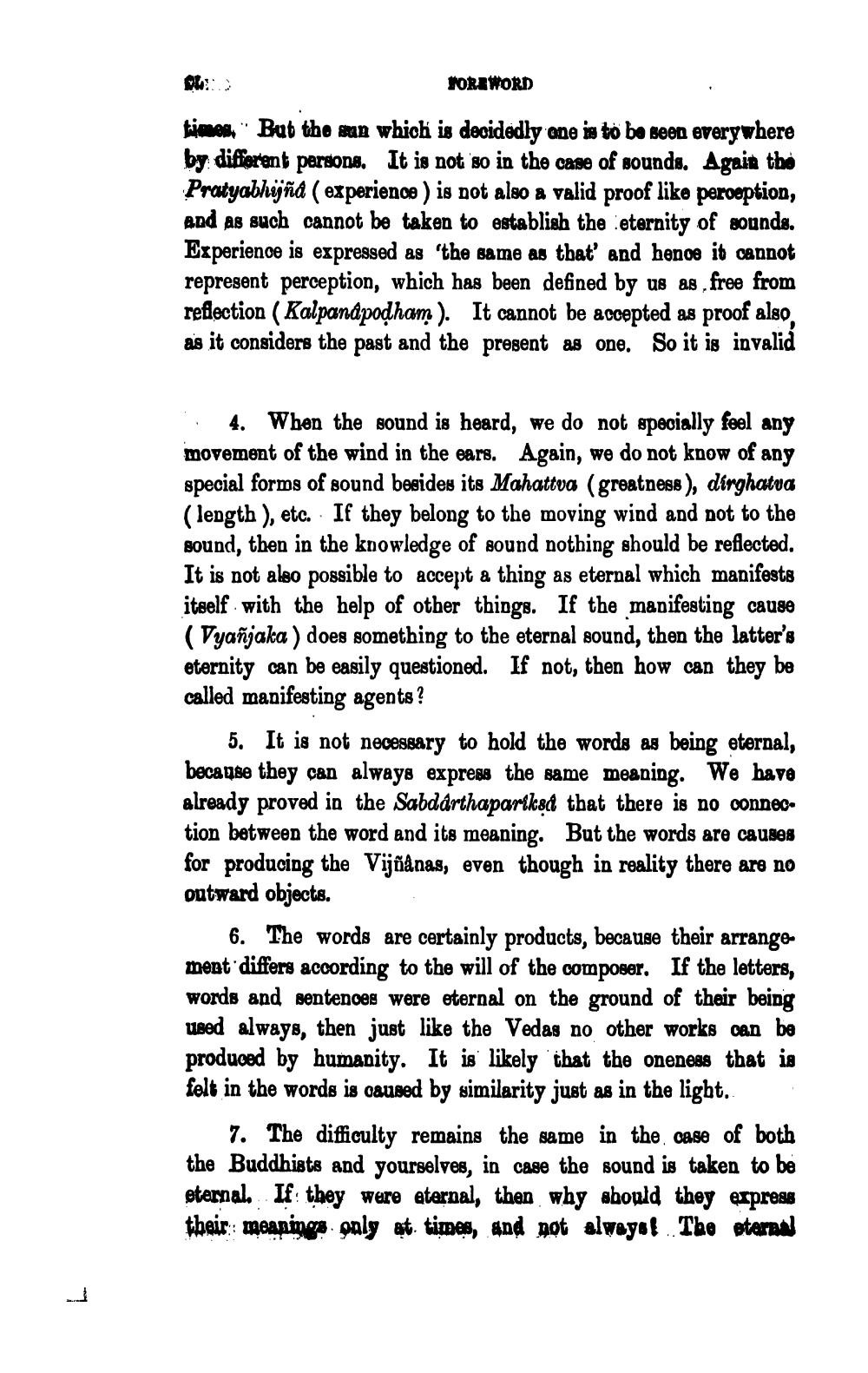________________
MOREWORD
timos, " But the sun which is decidedly one in to be seen everywhere by different persons. It is not so in the case of sounds. Again the Pratyabhijña ( experience ) is not also a valid proof like peroeption, and as such cannot be taken to establish the eternity of sounds. Experience is expressed as "the same as that and hence it cannot represent perception, which has been defined by us as , free from reflection (Kalpanapodham). It cannot be accepted as proof also, as it considers the past and the present as one. So it is invalid
. 4. When the sound is heard, we do not specially feel any movement of the wind in the ears. Again, we do not know of any special forms of sound besides its Mahattva (greatness ), dirghatva (length ), etc. If they belong to the moving wind and not to the sound, then in the knowledge of sound nothing should be reflected. It is not also possible to accept a thing as eternal which manifests itself with the help of other things. If the manifesting cause (Vyañjaka ) does something to the eternal sound, then the latter's eternity can be easily questioned. If not, then how can they be called manifesting agents ?
5. It is not necessary to hold the words as being eternal, because they can always express the same meaning. We have already proved in the Sabdárthapariksd that there is no connection between the word and its meaning. But the words are causes for producing the Vijñānas, even though in reality there are no outward objects.
6. The words are certainly products, because their arrangement differs according to the will of the composer. If the letters, words and sentences were eternal on the ground of their being used always, then just like the Vedas no other works can be produced by humanity. It is likely that the oneness that is felt in the words is caused by similarity just as in the light.
7. The difficulty remains the same in the case of both the Buddhists and yourselves, in case the sound is taken to be eternal. If they were aternal, then why should they express their meanings only at times, and not alwaysl The eternal




